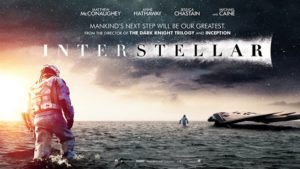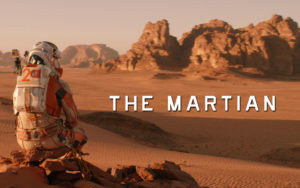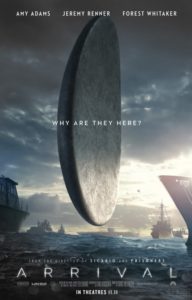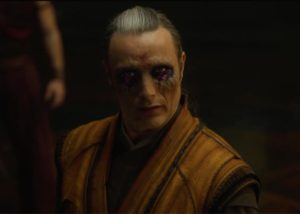In recent years we’ve had the good luck to see a number of high quality hard SF films released across the country; today I want to talk about two of them and why I like one over the other.
 Interstellar is from Christopher Nolan the brilliant filmmaker behind movies such as Memento, The Batman Trilogy, and Inception. Billed as a hard SF story Interstellar depicts a dying Earth where blights are devastating crops around the world and humanity is struggling to grow enough food. The official stance of the U.S. government is that the moon landings were forged to force the USSR to bankrupt itself in a useless space race. Now with the world on the brink of collapse a last ditch effort to find a new home is underway thanks to a wormhole opened by friendly, off screen, aliens. Our characters are part of an expedition through the wormhole and encounter the bizarre and counter-intuitive effects of highly warped space/time. There are betrayals by people who have lost all hope but in the end, and with an expression of the twins paradox displayed for the audience, humanity is saved.
Interstellar is from Christopher Nolan the brilliant filmmaker behind movies such as Memento, The Batman Trilogy, and Inception. Billed as a hard SF story Interstellar depicts a dying Earth where blights are devastating crops around the world and humanity is struggling to grow enough food. The official stance of the U.S. government is that the moon landings were forged to force the USSR to bankrupt itself in a useless space race. Now with the world on the brink of collapse a last ditch effort to find a new home is underway thanks to a wormhole opened by friendly, off screen, aliens. Our characters are part of an expedition through the wormhole and encounter the bizarre and counter-intuitive effects of highly warped space/time. There are betrayals by people who have lost all hope but in the end, and with an expression of the twins paradox displayed for the audience, humanity is saved.
 The Martian is from Ridley Scott and is a much more restricted in scope, dealing one man stranded on mars, alone and without the supplies required to stay alive until rescue can arrive. The story follows our hero as his brilliantly solves one problem after another and with his crew mates and people on Earth who devote tremendous resources, skill, and personal risk to save him. It is a man vs nature tale that focuses on a single man but also shows humanity as a whole fighting against an uncaring universe to save a single life.
The Martian is from Ridley Scott and is a much more restricted in scope, dealing one man stranded on mars, alone and without the supplies required to stay alive until rescue can arrive. The story follows our hero as his brilliantly solves one problem after another and with his crew mates and people on Earth who devote tremendous resources, skill, and personal risk to save him. It is a man vs nature tale that focuses on a single man but also shows humanity as a whole fighting against an uncaring universe to save a single life.
Now both films have flaws in the science. The Martian storm that strands our astronaut simply can’t exist and that was a known fact my the novelist who penned the original book and the people who adapted it. In Interstellar the smaller craft used to go between their main ship and the surface of the various planets they explore flies by PFM, pure flippin’ magic. In neither case do I really fault the films for the scientific failures, you always have to give something and grading movies on a curve these examples are tiny error.
I do favor The Martian over Interstellar because the story is so free of unrequired cynicism. I do not object to a cynical take or tone in a story. I love noir and that genre requires a cynical worldview, but not all stories benefit from a heavy dose of the cynical. I look at Interstellar, particularly with its ‘love conquers all; subtext and find that the cynicism is at odds with the rest of the film. It is tonally uneven and discordant, where The Martian never breaks from the tone it aims for. It is always a story about fighting for survival and the common humanity in such struggles.
SF can be cynical, 1984 and the movie Blade Runner are both examples of fine SF stories that have and require a cynical heartbeat, Interstellar did not need it and its inclusion damaged the movie execution.



